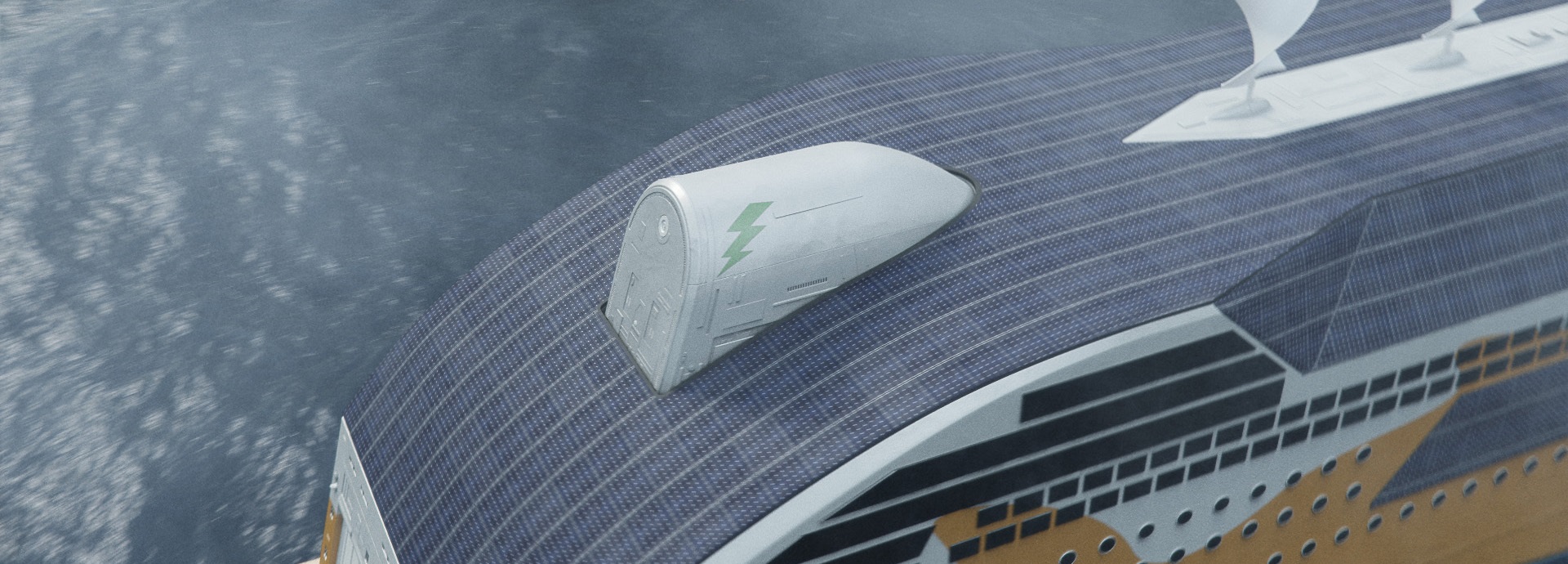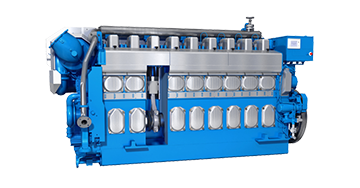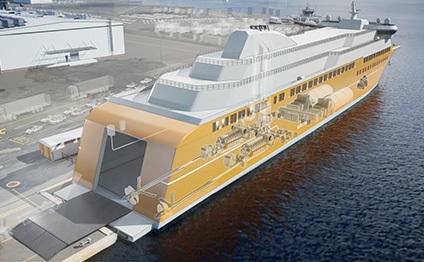

How to future-proof your newbuild vessels
Which smart decarbonisation strategy works best for you? How to bring your maritime decarbonisation strategy to life?
When you are building or planning to build a ship, you will want to invest in upgradable assets. Fuel flexibility is a must. Your options for future-proofing new vessels include:
- opting for future-proof propulsion systems
- choosing efficient, multifuel or alternative fuel engines
- favouring electric solutions such as hybrid, shore power, or shaft generators
- adopting energy-saving technologies
- adding catalyst systems which reduce NOx
- choosing integrated solutions
- installing an integrated solution for SOx, NOx, PM and CO2 abatement.
Decarbonisation solutions in detail
Take a closer look at your options for newbuilds.
Propulsion systems
Propulsion solutions from Wärtsilä are efficient. Because they reduce the consumption of energy, they play an important part in decarbonisation.

Multifuel engines
Engines are important solutions to reduce carbon emissions in shipping. These are examples of the green solutions available from Wärtsilä.
Alternative fuel engine Wärtsilä 32
The Wärtsilä 32 methanol engine can run on methanol and/or fuel oils. Because methanol combustion produces 50% less NOx than fuel oil, the Wärtsilä 32 methanol engine is compliant with IMO Tier II limits.
If you combine the Wärtsilä 32 with selective catalytic reduction, it meets IMO Tier III regulations.
Fuel handling systems
Special fuel handling systems are necessary when engines run on greener fuels. Wärtsilä can deliver complete systems for storage, bunkering, control, and monitoring. Commercially available for LNG- and methanol-fuelled ships.
Hybrid and electric solutions
Hybrid and electric solutions are a great example of green shipping technology. These solutions can optimise the operation of the engine, save money, and decrease emissions.
Energy saving technologies
Energy saving devices and technologies (ESTs) answer the question “how to make ships more efficient”? These technologies will save fuel, which will of course reduce CO2 emissions from ships. Wärtsilä has 11 great options on offer.
Onboard carbon capture and storage
Onboard carbon capture and storage allow you to capture a significant portion of the CO2 generated by the combustion units onboard. The captured CO2 is stored onboard for safe delivery to port reception infrastructure. The system can be a part of an integrated solution for SOx, NOx, PM, and CO2 abatement.
Catalyst systems
The Wärtsilä NOx Reducer (NOR) is an emission after-treatment system based on the Selective Catalytic Reduction (SCR) technology for Nitrogen Oxide (NOx) reduction. It optimises the engine performance and exhaust gas cleaning. Add the NOR to your Wärtsilä engine and the combination will meet the IMO Tier III and EPA Tier III regulations.
Integrated solutions
An integrated Wärtsilä propulsion system consists of components that together optimise the fuel consumption. Better fuel efficiency also results in fewer exhaust emissions.
For even better results, choose the Wärtsilä EcoControl. Its smart control system seeks and combines the optimal propeller pitch with the optimal engine loading. Fuel consumption is reduced to its most efficient level during transit sailing modes.
Maximise the lifetime of your newbuild vessel
A lifecycle agreement helps you maximise the lifetime of your newbuild vessel. You only need to take two smart steps:
Integrate the connectivity solution in the newbuild package. Secure connectivity will collect the relevant data from the engine control system and send it to the analytics system.
Select the level of service you prefer from the four options. You will make sure that the vessel will operate at its best. Its emissions will also stay at the design level.















